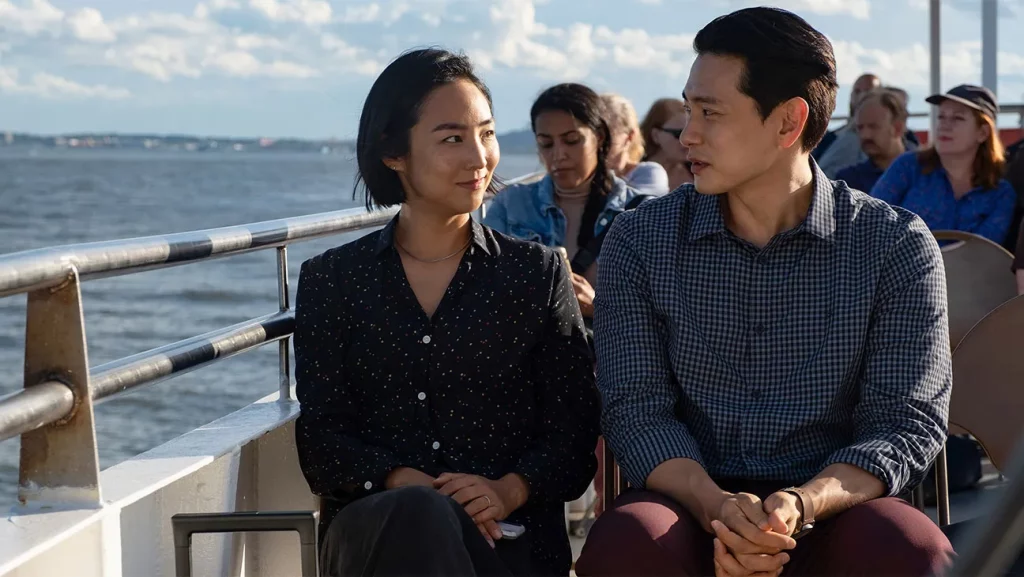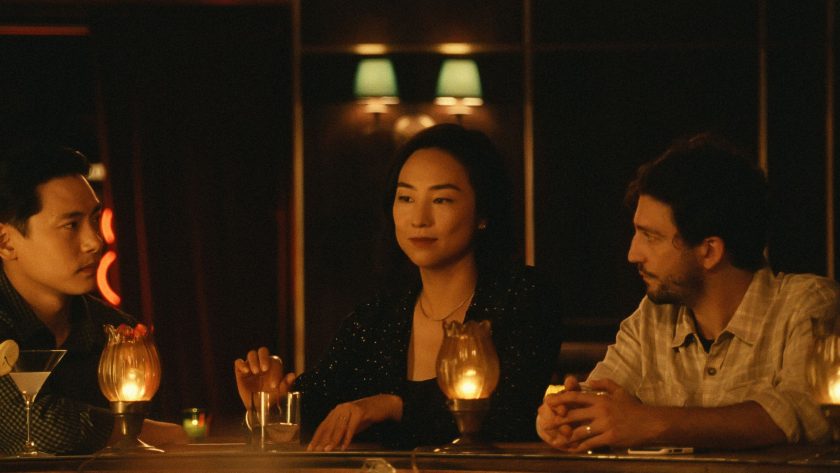James Carlstrand reflects on last year’s indie hit as the film garners nominations during this ongoing awards season.
There is a moment in Past Lives where our lead’s husband jokingly tells her that he simply can’t compete with the Hollywood worthy love story that she holds with her childhood friend from Korea and first crush. The story he weaves of long-lost Korean lovers ripped apart by distance, and whose reunion is blocked by an obstinate American husband, is what this film could have been, and what I first expected it to be. However, writer/director Celine Song who makes her feature-film debut instead weaves a far more complex, nuanced, and heart-wrenching story about the struggles of self-identity, personal conflict and questioning the paths that life could have taken.
The film, inspired by Song’s own life as a Korean immigrant, tracks the lives of Na Young (Greta Lee) and Hae Sung (Teo Yoo) at three major cross-roads; first as children before Young emigrates to America and changes her name to Nora, then again 12 years later when they reconnect over skype, and lastly in the present day when they meet in person for the first time since childhood. However, their story does not overflow with affection or chemistry as Song instead uses their relationship as a conduit to portray Nora’s internal conflict about her own identity and Korean heritage. Nora is portrayed as alienated from her Korean upbringing, and many of her conversations with Sung consist of her surprise at how Korean work, hierarchy, and dating principles have forged his life into one so radically different from hers. Sung is for Nora a window into a life she has gradually drifted away from. When telling her husband about Sung she even remarks about just how Korean he is, and how un-Korean she feels when she is around him. He is a reminder of her heritage, and a figure that materialises the imagined life she could have had if she simply remained in Korea. That is not to say Nora is yearning for this life, or regrets the one she has carved out for herself, but merely that she is exhibiting that most basic of human character traits wondering ‘What If’.

This question brings us to the crux and emotional heart of Song’s film which is an exploration into the way we reflect about ourselves, the people we use as mirrors to do so, and how we seek to reconcile the competing facets of our current and imagined lives. Nora is a character who in many ways still feels deep ties to her Korean heritage, as her husband tells her she still dreams in Korean, but has also found contentment, happiness, and an identity in America and a world so alien to the one she left behind. It is this seemingly irreconcilable contradiction which Song is exploring, and it is a question which could never be satisfyingly answered. However, the film comes as close to providing a cathartic response as possible for when Nora’s husband queries her on her connection to Korea, and her possible longing for it, she responds simply that it doesn’t matter because she ‘ended up here with you’- a recognition that our imagined past or future lives are not as important as our present.

Past Lives is a film which achieves what cinema at its best achieves- empathy and education. It is both a deeply personal look into the emotions of its director and her culturally specific experiences as a Korean immigrant in America. Yet, at the same time it is also a film which portrays its themes of shifting identity, the emotional fallout from change, and questioning how one’s life could have turned out, in a manner which is resonant and identifiable for us all. It is a film which allows its characters to explore these internal struggles and strife without judgement and encourages its audience to do the same.




